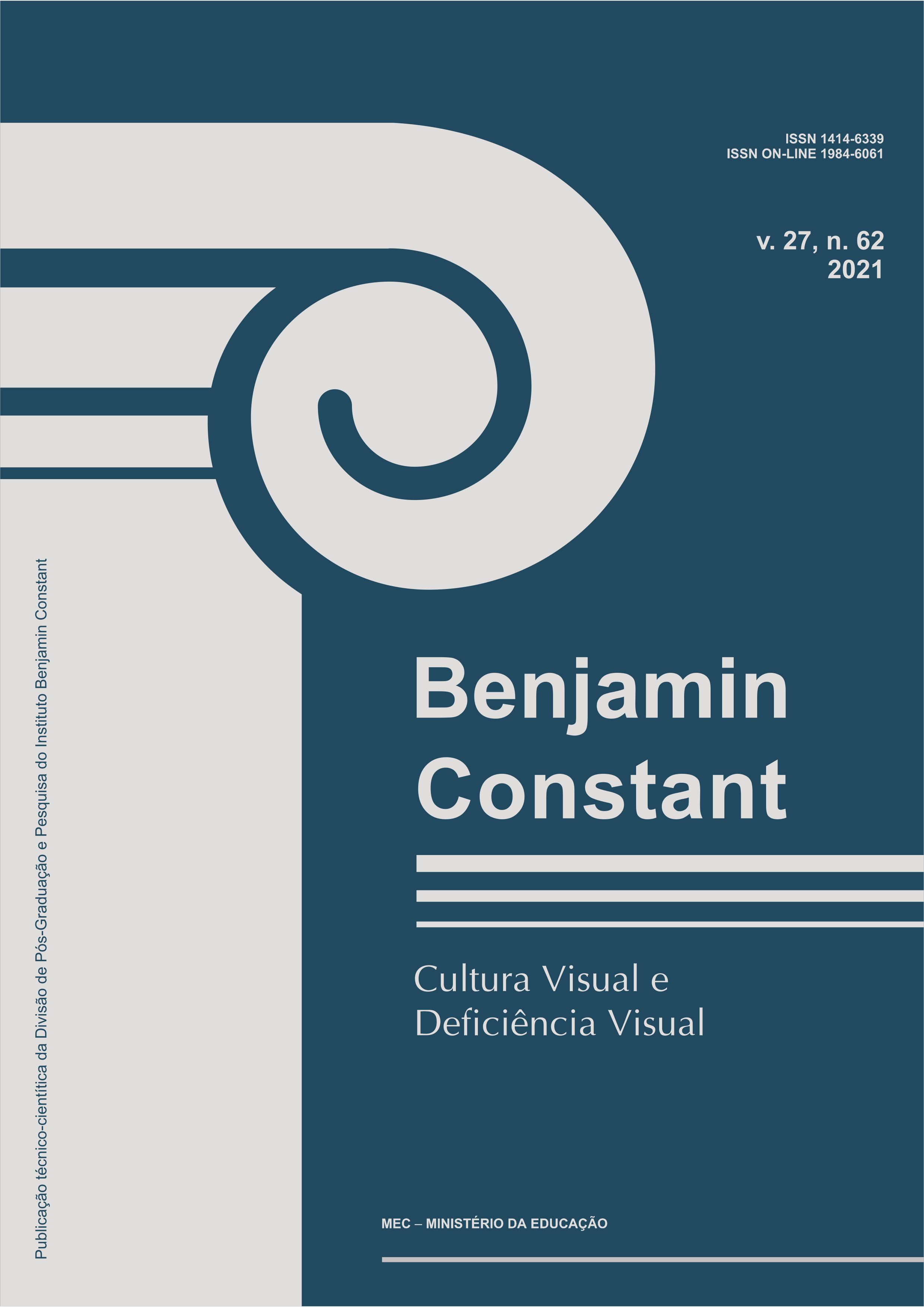The specificities of teaching and learning to read through the Braille System in the literacy of blind students
Abstract
Considering the importance of reading in the formation of individuals in literate societies, the article presents and discusses some of the specificities of the teaching and learning process of reading in the literacy of blind students through the Braille System. To this end, the research was based on the author’s personal experiences as a literacy teacher of blind students at a specialized institution in visual impairment, in Rio de Janeiro, in the years 2017, 2018 and 2019, with the aim of understanding what elements are fundamental for a blind student to learn to read using the Braille System. The analysis of the experiences was developed in the dialogue with authors who dedicated themselves to think about literacy, language and literacy of blind students. The study points to the necessary expansion of blind student's contact with the written language, the domain of the motor habit of reading and the perception and distinction of characters in braille, in addition to indicating that inherent characteristics to the Braille System and blindness can lead the blind student to make more mistakes and need more time to learn to read.
References
FREIRE, P. Não há docência sem discência. In: FREIRE, P. Pedagogia da Autonomia: saberes necessários à prática educativa. São Paulo: Paz & Terra, 1996. p. 21-45.
LURIA, A. R. Principais formas da alocução verbal. Linguagem oral (colóquio e monólogo) e linguagem escrita. In: LURIA, A. R. Pensamento e linguagem: as últimas conferências de Luria. Porto Alegre: Artes Médicas, 1986. p. 163-172.
MORAES, R. M. C. M. Braille e dêixis espacial: a importância da noção espacial no processo de ensino-aprendizagem do Sistema Braille por pessoas com cegueira adquirida. Benjamin Constant, Rio de Janeiro, n. 56, 2013. Disponível em: http://revista.ibc.gov.br/index.php/BC/article/view/369. Acesso em: 10 jun. 2020.
NANNEMANN, A. C. et al. Oral Braille Reading Decoding Strategies of Middle School Students Who Are Blind or Have Low Vision. Journal of Visual Impairment & Blindness, p. 284-288, mayjune 2017. Disponível em: https://files.eric.ed.gov/fulltext/EJ1142840.pdf. Acesso em: 8 set. 2019.
NICOLAIEWSKY, C. de A. CORREA, J. Escrita ortográfica e revisão de texto em Braille: uma história de reconstrução de paradigmas sobre o aprender. Cad. CEDES, Campinas, v. 28, n. 75, p. 229-244, ago. 2008. Disponível em: http://www.scielo.br/scielo.php?script=sci_arttext&pid=S0101-32622008000200006&lng=en&nrm=iso. Acesso em: 3 jul. 2020.
SARGIANI, R. A. Fases iniciais da aprendizagem da leitura e da escrita em Português do Brasil: efeito dos fonemas, gestos articulatórios e sílabas na aquisição do mapeamento ortográfico. 2016. 213 f. Tese de Doutorado (Programa de Pós-Graduação em Psicologia) – Instituto de Psicologia da Universidade de São Paulo, Universidade de São Paulo, São Paulo, 2016.
SOARES, M. Alfabetização: o método em questão. In: SOARES, M. Alfabetização: a questão dos métodos. São Paulo: Contexto, 2018a. p. 15-53.
SOARES, M. Leitura e escrita de palavras. In: SOARES, M. Alfabetização: a questão dos métodos. São Paulo: Contexto, 2018b. p. 254-285.
VYGOTSKI, L. S. El niño ciego. In: VYGOTSKI, L. S. Obras Escogidas – V – Fundamentos de Defectología. Volumen 2 – V de La Coleción Machado Nuevo Aprendizage. Madri: Machado Libros, 2012. p. 99-113.
VYGOTSKI, L. S. La prehistoria del desarrollo del lenguaje escrito. In: VYGOTSKI, L.S. Historia del Desarrollo de las Funciones Psíquicas Superiores, Obras Escogidas III, Coleción Machado Nuevo Aprendizage. Impreso em España, Madri, 2012. p. 127-144.





.png)
